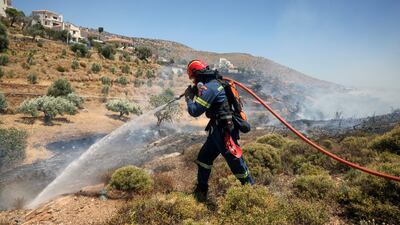Last month was the hottest June yet, as the world continued its record-breaking temperature streak.
The average surface air temperature for the month was 16.66°C, which is 0.14°C higher than the record set last June and 1.57°C above the 1991-2020 average for the month.
It was also the 13th warmest month in a row, and the 12th consecutive month, marking a full year the world has now reached or broken the 1.5°C threshold, according to the data set of Copernicus, the EU’s climate change agency.
Under the Paris Agreement, countries committed to keeping global temperatures below 2°C above pre-industrial levels, aiming for a 1.5°C limit. Scientists have warned that exceeding 1.5°C could cause severe climate effects, with every fraction of a degree being critical.
In Europe, temperatures were mostly above average over south-east regions and Turkey, but near or below average over western Europe, Iceland and northwestern Russia.
Outside Europe, temperatures were above average over eastern Canada, the western US and Mexico, Brazil, northern Siberia, the Middle East, Northern Africa and Western Antarctica.
Temperatures were below average over the eastern equatorial Pacific, indicating a developing La Nina.
Scientists have said this summer could be the world's hottest on record, even as the warming effect of El Nino fades out to be replaced with La Nina.
Hottest places on earth – in pictures
The latest El Nino, which began in June last year, peaked among the five strongest such events on record, according to the World Meteorological Organisation.
Last month, UN Secretary General Antonio Guterres warned humankind is on a fast track to “climate hell”.
“Of the vast forces that have shaped life on Earth over billions of years, humanity is just one small blip on the radar,” he said in a speech marking World Environment Day.
“But like the meteor that wiped out the dinosaurs, we're having an outsize impact,” he warned.
“In the case of climate, we are not the dinosaurs. We are the meteor. We are not only in danger. We are the danger.”
















